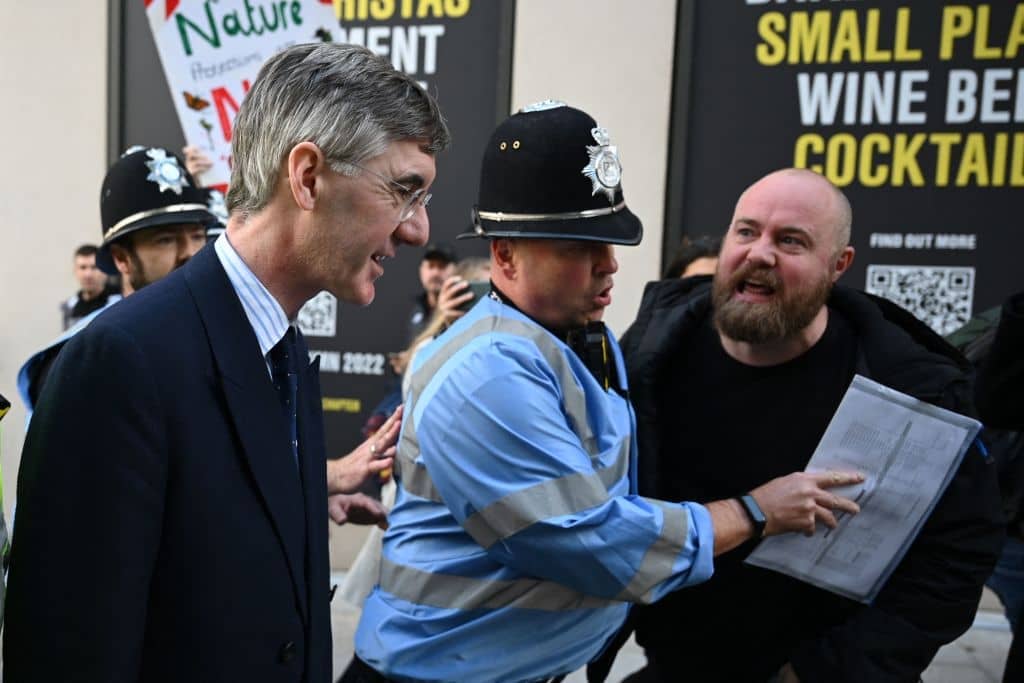Events in Birmingham this week reveal a crisis in the policing of public protest. It was no surprise that protestors would make their views loudly known outside the Conservative party conference. In exercising their rights to assemble and to speak, protestors play an important role in a democracy. But some of those attending the conference, exercising their rights to assemble and to speak, were, at times, subject to verbal and physical abuse and intimidation. They have also been exposed to levels of noise that, in certain parts of the conference centre, made it difficult for speakers to make themselves heard. The police have been curiously reluctant to act to protect attendees from abuse and intimidation, or from being silenced.
The police seem terribly confused. So why did West Midlands Police fail to act? In relation to disruptive levels of noise, some officers at first claimed that the Human Rights Act 1998 meant they had to allow the protestors to make themselves heard.

Britain’s best politics newsletters
You get two free articles each week when you sign up to The Spectator’s emails.
Already a subscriber? Log in






Comments
Join the debate, free for a month
Be part of the conversation with other Spectator readers by getting your first month free.
UNLOCK ACCESS Try a month freeAlready a subscriber? Log in